Vincenzo Lorusso, Policy Officer at the European Commission (Directorate-General for Research and Innovation), is one of the architects of the new joint policy initiative between the African Union (AU) and the European Union (EU) adopted on 19 July 2023: the AU-EU Innovation Agenda. Supported, from the EU side, by the Global Gateway, as well as Horizon Europe, the Agenda will represent the mainstay of the cooperation on Science, Technology and Innovation between Africa and Europe, for the next decade. It foresees short, medium- and long-term actions in the four joint AU-EU priority areas of Research and Innovation, namely: (i) Public Health; (ii) Green Transition (encompassing Food and Nutrition Security and Sustainable Agriculture as well as Climate Change and Sustainable Energy); (iii) Innovation and Technology; and (iv) Capacities for Science, together with the additional area of (v) Cross-cutting issues. Vincenzo Lorusso talks about this ambitious and unprecedented initiative that aims to promote the translation of Research and Innovation endeavours into tangible products, services, businesses and jobs, in Africa and Europe, and, within this context, about digital cooperation between the two continents.
First of all, what role digital technologies play in the AU-EU Innovation Agenda?
Digital technologies play an essential role in the science, technology, and innovation cooperation between Africa and Europe. If we look at the five areas of gaps and needs that were identified in the AU-EU Innovation Agenda (grouped in sections “A”, “B”, “C”, “D” and “E”), section C on “knowledge exchange, including technology transfer” mentions the importance of building a conducive environment to favour a voluntary and mutually agreed technology transfer and support market uptake of innovative technologies, through joint actions in relevant fields such as logistics, renewable energy and energy efficiency, sustainable forestry, seafaring, circular economy, health technologies and digital, in addition to agriculture, agro-processing, agro-ecology, green hydrogen and climate services for risk reduction. And section E, on “human capacity development”, mentions the need for enhancing and mainstreaming digital literacy and digitalisation across Africa.
The Agenda has set four objectives to address these gaps and needs and generate impact by fostering and/or strengthening innovation ecosystems to enhance positive socioeconomic impact on the ground, through the exchange of knowledge, technology, competencies, human resources and experiences between and within AU and EU countries. Objective n°2 (“Generate impact by design”) mentions specifically the importance of aiming for just twin – meaning digital and green – transitions in both Africa and Europe.
Moving from objectives to actions, there are several actions of the AU- EU Innovation Agenda that recognise the importance of digital technologies and innovations. Amongst the two short-term actions for Public Health, for example, the first one aims to support the transformation of health research and innovation outputs into relevant products, policy guidance and services, including medical, digital, technological and social innovations with applications in health care. And the second action aims to develop joint research and innovation agendas on health priorities, using key enabling and emerging technologies such as genomics, digitalisation, Internet of Things, robotics, and artificial intelligence.
In the priority area of Innovation and Technology, one short-term action mentions the importance of using digitalisation and artificial intelligence as transversal enablers. And among the short-term actions for Capacities for Science, the fourth action refers to the importance of fostering the development of high performing digital education systems and of upgrading digital skills and competencies for digital transformation.
Then, as we move from short-term to medium-term actions, there is specifically one action, the first one in the priority area of Green Transition that promotes digital applications in green technologies to enhance climate resilience and adaptation and to give impetus to agriculture and agro-ecological production, as well as aquaculture, health and sustainable food processing and consumption.
As we proceed from medium-term to long-term, there is one specific action in the area of Innovation and Technology that mentions very clearly the importance of ensuring that digital transformation supports the dissemination of knowledge, such as through promoting connection with the European Open Science Cloud.
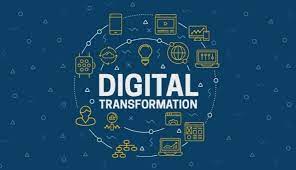 |
The role of digital technologies is considered as key in the Science, Technology, and Innovation cooperation between Africa and Europe, enshrined from the EU side in the overall strategy of the Global Gateway, the EU Global Approach to Research and Innovation and the EU Comprehensive Strategy with Africa, and from the AU side, in the African Union Commission on Digital Transformation Strategy for Africa 2020-2030, in addition to the African Union Agenda 2063 and the Science, Technology and Innovation Strategy for Africa 2024 (“STISA-2024”). | 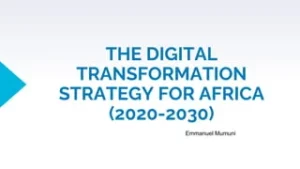 |
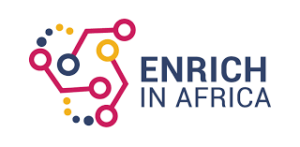 |
There are already several ongoing EU-funded projects and initiatives in the space of digital innovation and digital innovation hubs that are already contributing to the realisation of these ambitions, to mention a few examples, the “Digital for Development (D4D) Hub”, or Horizon 2020 projects such as ENRICH in Africa, AEDIB | NET, DIGILOGIC, AfriConEU and others. | 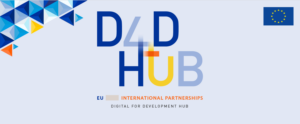 |
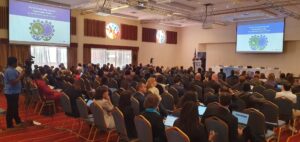 |
The new joint AU-EU Innovation Agenda was shaped through a very concerted dialogue involving a dedicated “Africa-Europe Team” from AU and European Commissions and Member States, as well as Research and Innovation stakeholders and independent experts across sectors from both continents and beyond. | 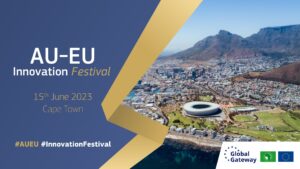 |
What are Africa’s main assets for achieving a successful, continent-wide digital transformation?
They are very much linked to Africa’s human capital to begin with, in addition to the overall resources on which Africa can rely. I would say, number one, creativity and entrepreneurship. These are clearly strong assets of the African continent that attributable to its very young population. A continent where 60% of the population, more than half of it, is below the age of 25, is inevitably one that bears a lot of creativity and entrepreneurship. These assets are very much intertwined with each other. Another asset is its agility and capacity to adapt to changing issues. In our ever-changing world, where challenges are of global nature, with no borders, constantly evolving from one day to the other, we need to be prepared to the unexpected, and prove to have adaptability, together with resilience. Against this backdrop, a youthful, creative young population such as Africa’s one, represents a really strong asset, a living hope vis-à-vis the challenges of our times and the future. Another element that I would like to mention is that to be able to thrive, these assets need to be supported by strong and sustainable infrastructures. We indeed need to bear in mind that there is no digital innovation, if some of the main essential infrastructures are still missing in Africa. I’m thinking for example of the importance of securing continuous and sustainable electricity provision, supply and generation in the continent. This is something that we need to build on and that shall become an asset for the African continent.

What can the two continents bring to each other in terms of innovations driven by digital technologies?
I think your question translates in words what we have started to see during and following two key events we co-organized with our African partners in the past few months: the AU-EU Innovation Agenda Stakeholder Event (November 2022 in Nairobi) and the more recent AU-EU Innovation Festival (June 2023 in Cape Town), where we brought together hundreds of innovators from both Africa, Europe and beyond. We can indeed see that there is a lot of ingenuity, creativity and agility coming from the African continent, in terms of digital tools, applications, softwares that are being developed to address several issues, to mention a few, climate change, food security, food storage, sales to markets, as well as fintech, or green finance. And there is a strong willingness in Africa to seize opportunities and turn challenges into capacities for growth. With the strong impulse provided by its creative youth!
What Europe can bring to Africa is linked in my view to durable infrastructures, as well as sustainability, on which Africa can build and further leverage its creativity through a forward-looking, equitable and co-owned Africa-Europe partnership.
